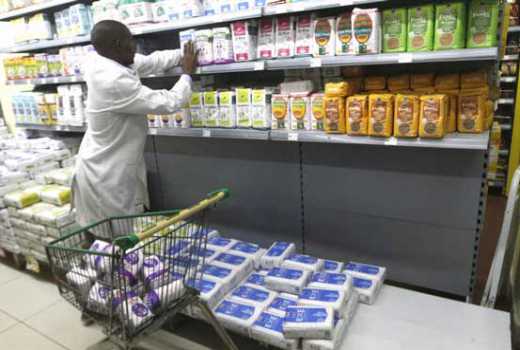×
The Standard e-Paper
Kenya’s Boldest Voice

NAIROBI, KENYA: Kenyans must brace for hard times ahead as maize flour, which is a staple food for millions, goes missing from several shops.
A spot check by The Standard on Monday revealed empty shelves in supermarkets in Nairobi. There was no subsidised flour, only special brands that retailed at a premium price of Sh225.